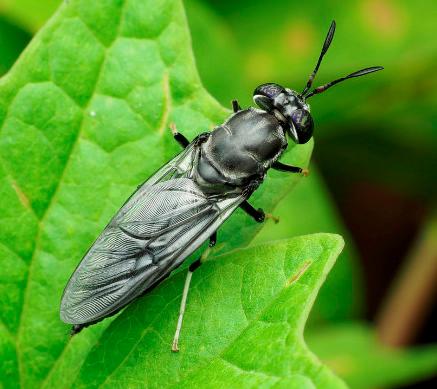PETALING JAYA: The government should invest more in black soldier fly (BSF) pilot facilities at universities to facilitate research and development of environmentally friendly products, such as compost or animal feed, said Universiti Teknologi Mara (UiTM) Faculty of Health Sciences Assoc Prof Dr Farah Ayuni Shafie.
BSF is an insect that is well known for its bioconversion capability.
“The use of BSF helps to lower greenhouse gas emissions, promote nutrient recycling and provide opportunities for bioenergy production. By investing in more sustainable waste management pilot facilities, Malaysia can increase resource efficiency and reduce waste and greenhouse gas emissions by incorporating it into the circular economy.
“The BSF pilot facility that was established at UiTM in 2020 has received a lot of attention in recent years. The centre operates in collaboration with the Malaysian Association of Environmental Health and a Malaysia-based biotechnology company that focuses on biowaste treatment and organic by-product upcycling by utilising these insect species,” she said.
The pilot facility seeks to divert organic waste from landfills by using the BSF larvae to efficiently consume and convert it into valuable resources such as fertilisers or animal feed, she added.
Researchers are also conducting studies to optimise the growth, reproduction and waste consumption rates of BSF.
“BSF could have a positive impact on the country’s circular economy model, which is a concept that aims to keep raw materials in a closed loop. In this way, resources are maximally used, the need for new ones is reduced, waste is avoided and the life cycle of products is increased. In short, the waste of today becomes the raw material of tomorrow – the same as in nature.”
Farah Ayuni said the pilot facilities could create direct and indirect jobs that include managerial positions, skilled labour, technicians and administrative staff, adding that indirect job opportunities could arise in related sectors as well, such as transport, maintenance and logistics.
“They also help provide business opportunities, with companies offering organic waste management services using BSF. As I know, among the significant sources of organic waste are university dining halls, food courts and cafeterias.
“These companies could collect waste from universities, restaurants, food processing facilities or agricultural operations to process it with BSF larvae to create valuable byproducts such as compost, animal feed or biofuels.”
Biotechnology and Nanotechnology Research Centre research and development assistant executive Nabilah Hamzah said: “BSF is a harmless specie of fly commonly found in tropical regions, including Malaysian forests.
“These insects have the remarkable ability to consume a wide range of organic matter, making them highly efficient in recycling organic waste into useful resources such as nutrient-rich compost and protein-rich larvae.
“Using BSF as a food source for farm livestock is a cost-effective and environmentally friendly option. Consumers are concerned about food safety and are looking for reliable alternatives. BSF is an appealing choice because it doesn’t spread diseases and has no negative impact on the environment. Besides, BSF offers high-quality protein and fat at a lower cost than other non-renewable feeds,” she said.
Agriculture and Food Security Minister Datuk Mohamad Sabu said in February that the Malaysian Agricultural Research and Development Institute is collaborating with the Malaysian Productivity Corporation to carry out a study on an alternative source for chicken feed as a long-term measure to address the rising costs of food production.
Commenting on this, Nabilah said: “The government wants to make sure there is enough food for everyone in the country. It is looking at different ways to do this, and one of them is by using BSF to produce cheaper chicken feed.
“The government is also working on producing corn grain in Malaysia instead of importing it. The government hopes to produce 30% of the corn grain that is needed by 2032. It is also planning to make chicken feed out of palm kernel expeller, which is a by-product of the palm oil extraction process.
“It is giving loans to chicken farmers to help them with their costs, and offering subsidies to some farmers. The government is also working on a plan to ensure that fertiliser (produced by BSF) is of good quality and safe to use,” she said.










